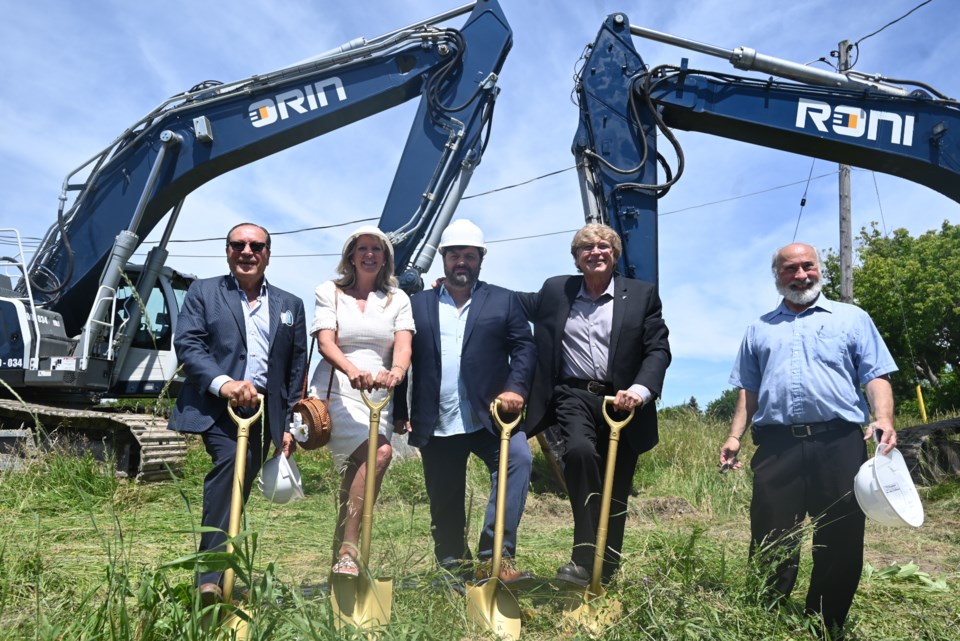Issues is a series of articles exploring top issues impacting the town and the 2022 Newmarket municipal election, talking with experts and local candidates about their perspectives.
Development and housing affordability remain critical issues in Newmarket with prices high and projects coming in.
Newmarket expects to grow by more than 20,000 people by 2051 according to population forecasts, with the rest of the region growing at a faster rate. Meanwhile, new housing applications in town have often attracted debate and opposition throughout the past term of council. NewmarketToday poll respondents voted development management as the second most important issue in this year’s election.
As housing prices have risen dramatically in York Region and beyond, organizations like Environmental Defence are encouraging infill development. Program manager Phil Pothen said addressing housing will require existing neighbourhoods opening up and an influx of new supply, with governments also needing to use policy and resources for affordability.
“If we’re talking about genuinely affordable housing, it’s going to take money. It’s going to take expenditures. It’s going to take official will,” he said, adding governments at all levels will have to use “existing revenue streams to build more subsidized housing.”
The region passed a controversial official plan in the summer that charts out development across the region as it seeks to accommodate 900,000 more people over the next 30 years.
Mayor John Taylor said housing is something in which citizens are very engaged. He said the town is “comparatively, doing very well” in addressing housing affordability, with projects like the affordable housing site coming to Bayview Parkway and space allotted for it in the Shining Hill development.
“There’s reasons to be optimistic,” Taylor said. “But we’re climbing a very big mountain here … Everyone who lives here knows it's becoming more and more difficult for young people to afford to live here.”
Part of Newmarket’s efforts to address that have come with density, with much of the town already built out. The area around the Upper Canada Mall is projected to add more than 5,000 units over 30 years, and projects like the Davis Drive condo towers have reached construction. Taylor has spoken several times about the likely increased demand for rental housing to come and the need to meet that.
But denser development proposed in existing neighbourhoods has become a point of friction. Some residents have raised ire with larger complexes getting proposed in places with detached family homes, such as with an unapproved 72-unit project on Gorham Street and Muriel Street.
However, Pothen argued that politicians should not assume those perspectives are necessarily that popular.
“NIMBYs are not the majority,” Pothen said, “Councils have to lean into saying this is something the public supports, rather than playing defence and assuming the public is going to oppose it.”
Pothen added that planning could do more to reduce opposition. He said traffic is often a major concern that municipalities could address by reducing or eliminating parking in new development proposals. Newmarket council has pushed developers to add more parking in several instances.
“If there isn’t parking, there isn’t going to be extra traffic generated by it,” Pothen said, adding that bylaws should address street parking.
NewmarketToday asked candidates in contested wards to weigh in on managing development.
Ward 2 candidate Brian Andrews questioned development in his ward and said they would likely be unaffordable.
“The Yonge/Davis corridor makes sense to continue building affordable high-density apartments and condominiums,” he said. “When the water/sewer allocation is available, the development of infill sites can move forward going through the proper planning and development process.”
“I believe we need to protect natural, conservation and farming land that is vital for the health of our country’s vitality, economic sustainability,” incumbent Ward 1 candidate Grace Simon said. “Developing on our main corridors, focusing on higher density (on our main line corridors), affordability and accessibility are important and a top priority for where we are as a community.”
“The key to development is balance,” incumbent Ward 6 candidate Kelly Broome said. “Zero growth will lead to a lack of housing, an increase in housing prices, and a stagnant local economy. High levels of growth will lead to poor planning and a lack of sufficient infrastructure to support growth.”
“The goal of responsible growth is to build vibrant and healthy neighbourhoods,” incumbent deputy mayor candidate Tom Vegh said. “As deputy mayor, I will continue to work with residents, business owners, community agencies, and council members to ensure our town remains one of the best places in Canada to live and raise our families."
Residents have raised concern with new private developments not being truly affordable. The town does negotiate with developers to make some percentage of new units affordable.
But Taylor said there are limited tools at municipal disposal to require a range of housing affordability in new developments, and fixing that requires provincial legislation.
“I’m hoping that all these voices can engage with the province to talk about how to provide stronger and better tools,” Taylor said. “The province’s focus right now is virtually, solely on increasing supply.”
Although supply is part of the answer, he said focusing only on that can just lead to more homes costing millions.
“That’s not going to turn the course.”



